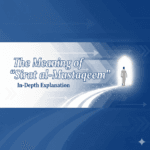Starting With The Name Of Almighty Allah
In the rich tapestry of Islamic history, the scribes of the Quran hold a pivotal place as the human instruments who captured divine words on earthly materials. These dedicated companions, often referred to as the scribes of divine revelation, bridged the gap between heavenly guidance and human understanding during the Prophet Muhammad’s (PBUH) lifetime. If you’ve ever wondered about the writers of the Revelation or the companions who wrote the Quran, this exploration delves into their identities, responsibilities, and lasting impact. From early Quran transcription to the role of Quran scribes in preserving sacred text, we’ll uncover how these individuals ensured the Quran’s integrity for generations.
The Qur’an was revealed to the Prophet Muhammad (PBUH) over 23 years, starting in 610 CE, and it is considered the verbatim word of God in Islam.
The Quran: A Divine Message and Its Revelation
To appreciate the scribes’ contributions, it’s essential to grasp the Quran’s essence as the word of Allah, revealed through Angel Jibril to Prophet Muhammad (PBUH). This process, known as Wahi, began in a cave on Mount Hira(Jabal an-Nour), where the first command was to “Read” (Iqra), emphasizing knowledge and literacy even though the Prophet wasn’t lettered.
“Indeed, We have sent it down as an Arabic Qur’an that you might understand.”
(Quran 12:2)
Traditional Islamic belief holds that the Quran is unaltered divine speech, a miracle in its eloquence and guidance. Revelations came in response to events, questions from companions, or societal needs, spanning the Meccan and Medinan periods. The Prophet would experience physical signs during Wahi, such as heaviness or sweating, and immediately dictate the verses to trusted aides.
For those seeking a deeper foundation, exploring “What is the Holy Quran?” can provide insights into its structure and significance, helping contextualize the scribes’ work.
The Emergence of Scribes: Capturing Wahi in Real Time
As revelations intensified, the need for reliable record-keepers arose. The scribes of the Prophet, or scribes of Wahi, were selected for their literacy, trustworthiness, and piety. In an era where writing was rare in Arabia, these individuals used available materials like palm leaves, animal bones, leather scraps, and flat stones to transcribe verses promptly.
This early Quran transcription was not haphazard or disorganized. The Prophet supervised every detail, ensuring accuracy. Scribes often memorized the text alongside writing it, creating a dual system of oral and written preservation that has endured.
The Messenger of Allah (PBUH) said:
“The pens have been lifted and the pages have dried.”
(Hadith from Sunan at-Tirmidhi, emphasizing the finality of divine text)
Their role extended beyond mere copying. They were guardians of authenticity, sometimes verifying recitations in group settings.
Prominent Quran Scribes’ Names: Who Were These Key Figures?
Islamic sources provide a list of Quran scribes, with estimates varying from 40 to over 50 companions. While not all are named in primary texts, historical accounts highlight several prominent ones. Here’s a closer look at some of the most notable scribes of the Quran, drawn from reliable traditions.
- Zaid ibn Thabit (RadiyAllahu ʿAnhu):
Often considered the chief scribe, Zaid was young but exceptionally skilled in Arabic and other languages. Appointed by the Prophet (PBUH), he transcribed numerous revelations and later led compilation efforts. His meticulous nature made him indispensable.
- Ali ibn Abi Talib (RadiyAllahu ʿAnhu):
The Prophet’s cousin and son-in-law, Ali ibn Abi Talib (RadiyAllahu ʿAnhu), was among the earliest converts and scribes. Known for his wisdom, he wrote treaties and verses, embodying the scribes’ dual role in documentation and leadership.
- Ubayy ibn Ka’b (RadiyAllahu ʿAnhu):
A master reciter and scribe, Ubayy ibn Ka’b (RadiyAllahu ʿAnhu) focused on Medinan revelations. He was praised by the Prophet for his recitation skills, highlighting how scribes blended writing with memorization.
- Abdullah ibn Mas’ud (RadiyAllahu ʿAnhu):
From the early Meccan period, he transcribed verses and taught them to others, playing a key part in spreading the Quran.
- Uthman ibn Affan (RadiyAllahu ʿAnhu):
Before becoming caliph, Uthman (RadiyAllahu ʿAnhu) wrote down verses and contributed to administrative records.
Other names include Abu Bakr as-Siddiq, Umar ibn al-Khattab, Zubayr ibn al-Awwam, Abdullah ibn Sa’d, who had a complex journey but initially served as a scribe, and Muawiyah ibn Abi Sufyan; however, his role has been debated in historical contexts. This list of Quran scribes reflects a diverse group, from early companions to those who joined during conquests (RadiyAllahu ʿAnhum Ajmaeen).
“Nay! Indeed, it (the Qur’an) is an honorable, well-preserved Book. None can touch it except the purified. It is a revelation from the Lord of the worlds.”
Surah Al-Waqi’ah (56:77-80)
Role of Quran Scribes: Beyond Writing to Preservation
The role of Quran scribes was multifaceted, encompassing transcription, verification, and education. They didn’t just write; they ensured verses were placed in the correct order as instructed by the Prophet, who would specify Surah positions.
In daily life, scribes accompanied the Prophet (PBUH) during travels, battles, and migrations, ready to record at any moment. For instance, during the Hijrah to Medina, revelations continued, and scribes like Zaid ibn Thabit (RadiyAllahu ʿAnhu) adapted to nomadic conditions.
Their contributions to early Quran transcription included cross-checking with memorizers (Huffaz) to prevent errors. This system was crucial in an oral-dominant society, where writing served as a backup to memory. As a hadith, narrated by Abu Hurairah (Radiyallahu Anhu):
“The Prophet (PBUH) used to revise the Quran with Jibril once every year, but in the year he departed, He (PBUH) revised it twice.”
(Hadith from Sahih al-Bukhari, 4998)
The dedication of these early scribes ensured that the Qur’an reached us in its authentic form, preserved through both writing and memorization. Today, learning the Qur’an with proper pronunciation and Tajweed carries forward this legacy of accuracy and respect for the Divine text. If you’re looking to begin your own journey of learning the Qur’an from home, our guide on “How to Learn Quran with Tajweed at Home” offers practical tips and resources to help you get started offers practical tips and resources to help you get started.
The Scribes’ Legacy in Quran Compilation
After the Prophet’s passing in 632 CE, the scribes’ work transitioned to compilation. Under Caliph Abu Bakr, Zaid ibn Thabit gathered fragments into a single Mushaf, consulting other scribes and memorizers to verify authenticity.
Later, during Caliph Uthman’s reign (644-656 CE), standardization occurred to unify dialects, producing multiple copies sent across the empire. Scribes like Ubayy and Abdullah ibn Mas’ud influenced regional variants, but Uthman’s version became the standard.
This process addressed growing Muslim communities’ needs, preventing discrepancies.
The efforts of these early scribes laid the foundation for the Qur’an’s preservation and compilation, ensuring a unified and authentic text for generations to come. To explore this journey in more depth, you can read our detailed blogs on “How Was the Qur’an Preserved?” and “Who Compiled the Qur’an into a Book?” for a closer look at the remarkable history behind the Mushaf we have today. In the Quran, our creator and the Almighty Allah says:
“Indeed, it is We who sent down the Qur’an and indeed, We will be its guardian.”
(Quran 15:9)
Balancing Perspectives: Islamic Faith and Historical Analysis
From a traditional Islamic viewpoint, the scribes were divinely guided instruments, ensuring perfect preservation as promised by Allah. The Quran’s unchanged text today testifies to this, with no alterations despite centuries.
Historical and academic approaches, however, examine the process through manuscripts, linguistics, and archaeology. Some scholars note variations in early scripts or the role of oral tradition, suggesting evolutionary compilation. For example, debates around scribes like Abdullah ibn Sa’d highlight human elements, though Islamic sources refute claims of tampering. In the Holy Quran, our creator and the almighty God, Allah (S.W.T) says:
“Indeed, it is We who sent down the Qur’an and indeed, We will be its guardian.”
(Quran 15:9)
These perspectives enrich understanding without conflicting core beliefs. Faith sees divine oversight, while history appreciates the meticulous human effort.
The Enduring Influence of the Companions Who Wrote the Quran
The companions who wrote the Quran set a precedent for scholarship and devotion. Their work inspires today’s Quran studies, where accuracy remains paramount. In an age of digital tools, reflecting on their manual labors reminds us of the text’s sanctity.
If you’re eager to engage with this heritage, consider enrolling in Online Classes of Quran, which offer structured guidance mirroring the scribes’ disciplined approach.
Training and Qualifications: What Made a Scribe Effective?
Becoming a scribe required more than literacy; it demanded moral integrity and quick learning. The Prophet personally trained many, like Zaid ibn Thabit (RadiyAllahu ʿAnhu), who learned Hebrew and Syriac for diplomatic correspondence.
Their qualifications included strong memory, as they often recited verses before writing. This blend of skills ensured the scribes of Wahi could handle the revelation’s poetic and legal complexities. A hadith from Sunan Ibn Majah emphasizes lifelong learning, similar to the scribes’ commitment.
“Seeking knowledge is a duty upon every Muslim.”
(Sunan Ibn Majah, Hadith #224)
Challenges Faced by the Scribes of the Prophet
Despite limited materials and low literacy, the scribes remained steadfast in their mission. Figures like Ali (RadiyAllahu ʿAnhu) balanced the roles of scribe and soldier, exemplifying extraordinary dedication and versatility. Life as a scribe wasn’t easy. Persecution in Mecca forced some to hide writings, while battles like Yamama claimed many memorizers, prompting urgent compilation.
Despite this, their resilience preserved the text. Stories of scribes enduring hardships underscore their faith-driven motivation.
The dedication of these early scribes ensured that the Qur’an reached us in its authentic form despite unimaginable challenges. Today, technology allows us to access this preserved text easily from anywhere in the world. For those looking to begin their learning journey, especially with proper Tajweed and understanding, the Online Quran Classes in USA from Najam Academy offer a convenient way to connect with qualified teachers and carry forward this legacy of knowledge.
Ethics and Integrity of the Qur’anic Scribes
The scribes of revelation embodied humility, faithfully recording the Divine words without adding personal interpretation. Their deep reverence for the sacred text set an ethical standard that continues to inspire scholars today and serves as a reminder for students learning the Qur’an through the Online Quran Classes, where accuracy and respect for the Divine message remain central.
Women Sahaabiyat & Other Unsung Scribes
While most recorded scribes were men, women played indirect yet valuable roles in preserving the Qur’an, often through memorization and teaching rather than writing. For example, early Muslim women like Umm Kulthum bint Uqba (RA) were known for their learning and recitation skills. Al-Shifā bint Abdullāh (RA) was one of the very few literate women in pre-Islamic Mecca. She taught how to read and write to Hafṣah bint Umar (RA), the wife of the Prophet (P.B.U.H) and future custodian of the Mushaf.
Similarly, lesser-known scribes such as Khalid ibn Saʿid (RA) occasionally documented specific revelations, reflecting that Qur’an preservation was a collective responsibility shared by the early Muslim community rather than limited to a small group of elites.
Modern Relevance: Connecting with the Scribes’ Spirit
Today, the scribes’ legacy lives in Quran academies worldwide. By studying their methods, we appreciate the text’s authenticity. Whether through apps or classes, emulating their precision fosters a deeper connection.
Interested in interactive sessions? Quran Classes online from Najam Academy, a well-known online institute of Quran and Islamic Education, brings this history to life with expert tutors.
Carrying the Legacy Forward
The scribes of the Quran were more than record-keepers; they were stewards of divine wisdom, whose efforts have illuminated countless lives. As we reflect on their stories, it’s clear that engaging with the Quran today requires similar dedication. For top-tier guidance, turn to Najam Academy, a leading Online Quran Academy in the USA and UK. With experienced instructors, flexible schedules, and a focus on Tajweed, Tafsir, and memorization, Najam Academy helps students of all ages connect with the Quran’s timeless message, just as the scribes did centuries ago. Whether you’re a beginner or advanced learner, our programs build on this rich heritage to foster spiritual growth and knowledge.




